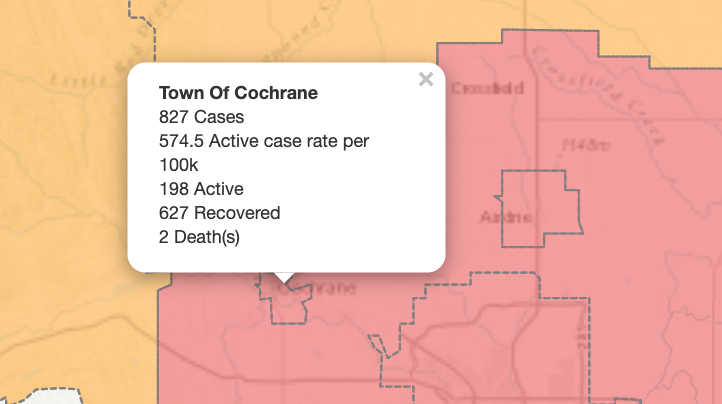ALBERTA— Premier Jason Kenney introduced a series of new public health measures designed to stop the spike of COVID-19 cases in Alberta.
On Tuesday (May 4) The Emergency Management Committee of Cabinet approved a new set of public health measures.
Starting Friday (May 7) all Alberta students will move to at-home learning until Tuesday, May 25. Kenney said the move to online was essential given the community spread in the province pushing schools to the point they will be unable to operate.
The two-week reset is designed to allow students to return to in-person learning for the remainder of the year.
Beginning on Wednesday (May 5) a series of health measures will be in enacted for at least three weeks — Workplaces with COVID-19 outbreaks will be required to close operations for 10 days, with the exception of essential work. All post-secondary students will move online. Retail operators will be limited to 10 per cent of fire code capacity. Outdoor social gatherings will be limited to five people with a strong recommendation to limit gatherings to two family cohorts. Places of worship will be limited to 15 people and funerals are now limited to 10 people.
Effective Sunday (May 9) personal wellness services will close for the next three weeks. In-person dining at bars and restaurants, including patios, will also close, delivery and take out will still be permitted. Health, personal and professional services will remain available by appointment only.
When possible, Albertans are required to work from home. If at a work-site masks will be required if physical distancing is not possible.
As part of the provincial effort to stop the spike of COVID-19, Kenney said, those who violate public health measures will face steeper fines. Offenders will see the payment double from $1,000 for an initial offence to $2,000 and a maximum of $100,000 for repeat offenders. Tougher enforcement is also being introduced for repeat offenders.
“We will not tolerate those who endanger the health of their fellow Albertans while the vast majority of people are doing the right thing,” Kenney said.
In the past month the province has set COVID-19 case number records, including the number of Albertans in intensive care units due to COVID-19.
The province has faced multiple waves of COVID-19 over the past 14 months but remains committed to protecting the health care system, he said.
In the last 24 hours, 1,743 new cases of the virus have been identified after the completion of about 14,600 tests.
The testing positivity rate in the province sits at 12.4 per cent.
There are currently 23,623 active cases of COVID-19 in Alberta.
The Town of Cochrane had a reported 198 active cases of COVID-19 as of the end of the day Monday (May 3). To date 827 cases have been identified— Two people have died and 627 people have recovered.
Variants of concern account for 62.3 per cent of COVID-19 cases in Alberta.
The arrival of highly transmissible variants has put pressure on the health care system, Kenney said. The disease is continuing to spread at an alarming rate, especially among younger people in the province.
Currently, there are 671 COVID-related hospitalizations, including 150 patients in intensive care.
There were a reported nine new COVID-related deaths in the last 24 hours in Alberta. To date, 2,099 Albertans have died.
Surge capacity has been developed by Alberta Health Services to provide 425 intensive care beds, if necessary, Kenney said, but this will require mass cancellations of surgeries and other care people may need.
Kenney said additional health measures were deemed necessary because if exponential growth of COVID-19 cases continues they will push past Alberta Health Service's surge capacity in weeks.
“We will not permit our health care system to be overwhelmed. We must not and we will not force our doctors and nurses to decide who gets the care and who doesn’t,” Kenney said. “We must act now to stop the spike.”
Kenney implored Albertans to get vaccinated when they are able and to continue following health measures to help prevent the spread of COVID-19.
To date, more than 1,668,455 doses of the COVID-19 vaccine have been administered in Alberta. About 30.5 per cent of Albertans have received their first dose and 6.8 of Albertans have been fully immunized.




